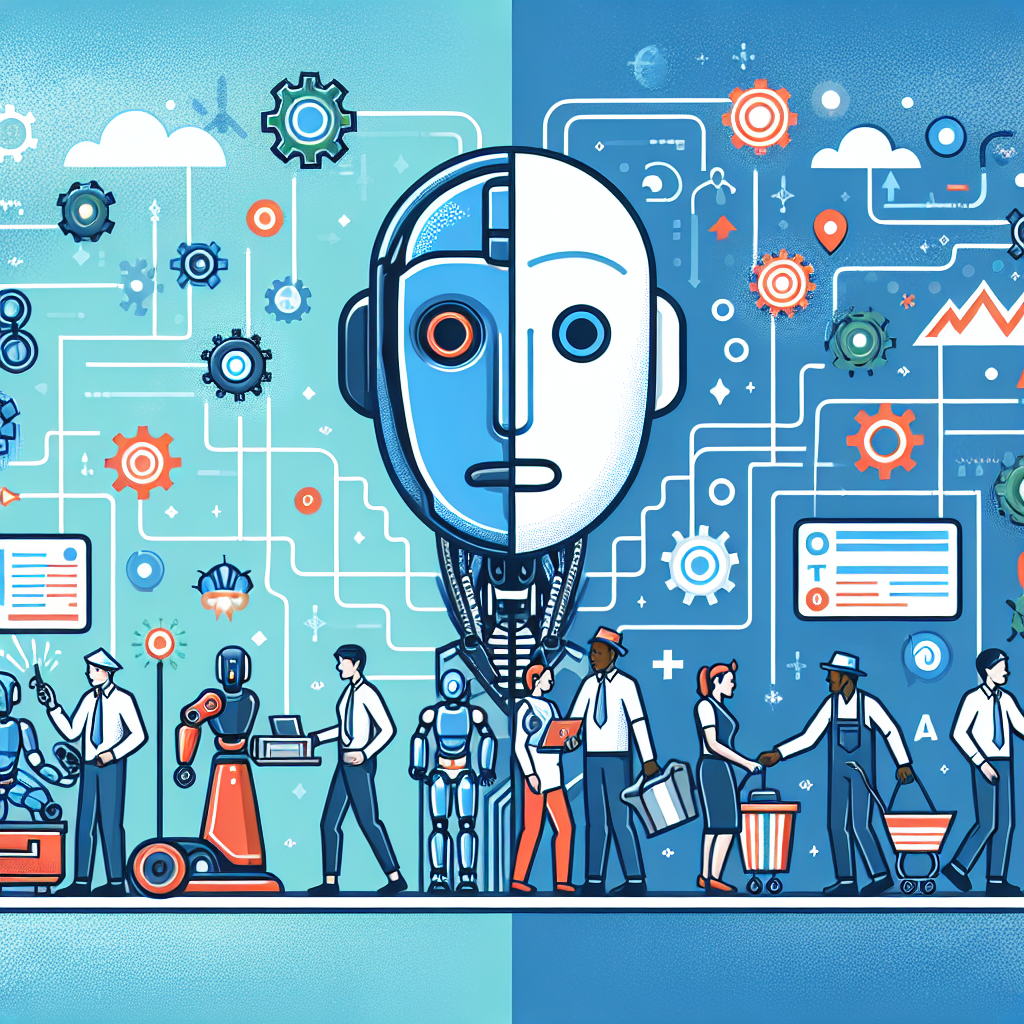AGI and the Job Market: Will AI Automation Lead to Job Losses or Job Creation?
Artificial General Intelligence (AGI) has the potential to revolutionize the job market in ways that we have never seen before. As AGI technology continues to advance, many people are concerned about the impact it will have on the job market. Will AI automation lead to job losses, or will it create new job opportunities? This article will explore the potential effects of AGI on the job market and discuss whether it will lead to job losses or job creation.
What is AGI?
AGI, or Artificial General Intelligence, refers to AI systems that are capable of performing any intellectual task that a human can do. Unlike narrow AI systems, which are designed for specific tasks, AGI systems have the ability to learn and adapt to new tasks without human intervention. AGI has the potential to revolutionize industries such as healthcare, finance, and transportation by automating complex tasks that were previously thought to require human intelligence.
Will AI Automation Lead to Job Losses?
One of the biggest concerns surrounding AGI is that it will lead to job losses as machines become more capable of performing tasks that were once done by humans. According to a study by the McKinsey Global Institute, as many as 800 million jobs could be lost to automation by 2030. This has led to fears that AGI technology will lead to mass unemployment and economic instability.
However, some experts argue that AGI will not necessarily lead to job losses, but rather a shift in the types of jobs that are available. As machines take over repetitive and mundane tasks, humans will be able to focus on more creative and strategic roles. This could lead to the creation of new job opportunities in industries such as AI development, data analysis, and cybersecurity.
Will AI Automation Lead to Job Creation?
While the fear of job losses due to AI automation is valid, there is also the potential for AGI to create new job opportunities. As AGI technology continues to advance, there will be a growing demand for skilled workers who can design, develop, and maintain AI systems. This could lead to job creation in industries such as robotics, machine learning, and software engineering.
Additionally, AGI has the potential to create new industries and business opportunities that we have not yet imagined. As machines become more capable of performing complex tasks, new products and services will be developed that will require human oversight and creativity. This could lead to the creation of new job roles in sectors such as virtual reality, augmented reality, and autonomous vehicles.
FAQs
Q: Will AGI lead to mass unemployment?
A: While there is the potential for AGI to lead to job losses in certain industries, it is unlikely to lead to mass unemployment. As machines take over repetitive and mundane tasks, humans will be able to focus on more creative and strategic roles, leading to a shift in the types of jobs that are available.
Q: What industries will be most affected by AGI?
A: Industries such as manufacturing, transportation, and customer service are likely to be the most affected by AGI, as these sectors rely heavily on repetitive tasks that can be automated. However, AGI also has the potential to revolutionize industries such as healthcare, finance, and education by automating complex tasks that were previously thought to require human intelligence.
Q: Will AGI create new job opportunities?
A: Yes, AGI has the potential to create new job opportunities in industries such as AI development, data analysis, and cybersecurity. As machines become more capable of performing complex tasks, there will be a growing demand for skilled workers who can design, develop, and maintain AI systems.
In conclusion, AGI has the potential to revolutionize the job market in ways that we have never seen before. While there are concerns about job losses due to AI automation, there is also the potential for AGI to create new job opportunities and industries. As the technology continues to advance, it will be important for policymakers, businesses, and workers to adapt to the changes that AGI will bring to the job market.

